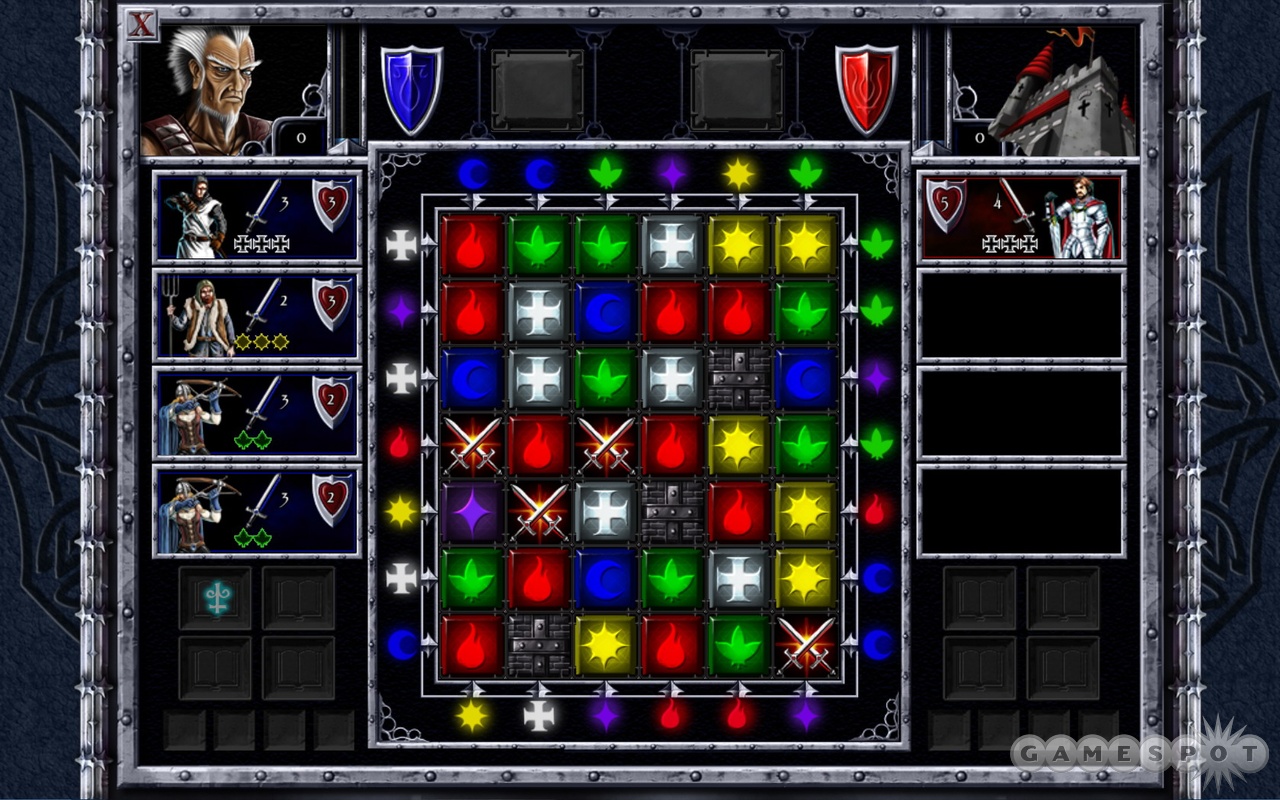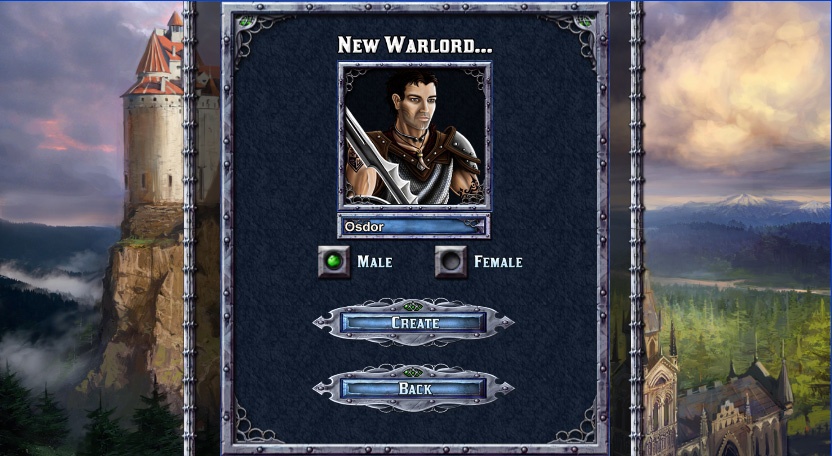Developer Infinite Interactive struck gold with the debut of Puzzle Quest, blending a popular puzzle game and traditional role-playing mechanics into one addictive package. Puzzle Kingdoms uses the same hybrid formula as its predecessor, but changes to the underlying puzzle game and battle system make for a slower, more strategic experience. It's not as accessible as Puzzle Quest and doesn't look as pretty, but it's fun and engaging regardless.

After choosing your new warlord in Puzzle Kingdoms, you'll meet one of the many heroes you'll lead into battle throughout the campaign. These heroes learn new spells and gain new abilities as they level up, much like in Puzzle Quest. However, Kingdoms puts more emphasis on the gold you collect, which you'll use to recruit different troops into battle. Troops form the basis of your physical attacks, but they can be defeated and permanently lost during battle. Your game ends if you lose all of your troops and have no gold left over to recruit new fighters. This mechanic adds an extra layer of strategy to the game because the makeup of your team greatly affects your performance during battle. For example, you can customize your group to focus on cheap, disposable fighters who are quicker to attack or on costly, well-armored soldiers who might take longer to launch an offensive.
Puzzle Kingdoms retains the typical match-three battle mechanic from Puzzle Quest, but instead of swapping tiles, you'll be shifting an entire row or column in one direction, adding one tile to the play field while removing another. The display shows you the tile will be added, so you always know the consequences of your moves. The goal is to create groups (straight or L-shaped) of three or more like-colored tiles. Each troop requires a specific combination of matched tiles to build its attack power, and any unused matches automatically add to your magic pool. Destroying all of an enemy's troops wins the match, and defeating all of the enemies on a map captures that kingdom. Eventually, you can choose which kingdom to take into battle with a maximum of four heroes, troops, and relics. This new battle mechanic is much more complex than Puzzle Quest and therefore a bit less user-friendly, but those who take the time to learn it will find a more intricate, rewarding system.
When you aren't in battle, you can travel the world map to play minigames at shrines, dungeons, and taverns. These games challenge you to clear the board of tiles within a set number of turns or to match a specific number of colored tiles within a time limit. Your rewards for completing the minigames are usually status upgrades, items, or information. You can also try out the multiplayer Hotseat mode where two people take turns playing the game on one screen. These are all interesting diversions when you want to take a break from the main quest, but there's nothing particularly innovative about their execution.
While its puzzle and role-playing-game mechanics are just as addictive as those of its predecessor, Puzzle Kingdoms takes a huge hit in its presentation. The story--told mostly through walls of text--really only serves as a contrivance for battle. The art design is generic and ugly, and the few animations and sound effects throughout the game are horribly executed. An attack during battle, for example, displays a brief picture of your troop along with a cheap sword clank. When choosing your warlord, your only customizable options are gender and name, and the two available portraits are stock RPG characters. The game's music is adequate but entirely forgettable. Although the core mechanics are solid, the shoddy presentation makes Puzzle Kingdoms seem rushed.

The Wii and DS versions of Puzzle Kingdoms are essentially identical, save for minor changes to the control schemes and visual fidelity. The Wii version is prettier to look at, but the DS game has superior controls. As has become a staple of many Wii games, Puzzle Kingdoms tacks on such needless motion controls as swiping the Wii Remote to attack when simply pushing a button would make more sense. It's just easier to slide the tiles you want with the DS' stylus than it is to point at them with the remote.
Because the story and core mechanics are basically the same on both the Wii and DS, your decision will boil down to whether you want to play the game at home or on the go. Either way, you can't go wrong for the asking price. If you're willing to ignore the production values, you'll find an addictive adventure worthy of the "from the creators of Puzzle Quest" moniker that is so proudly displayed on the Puzzle Kingdoms box art.